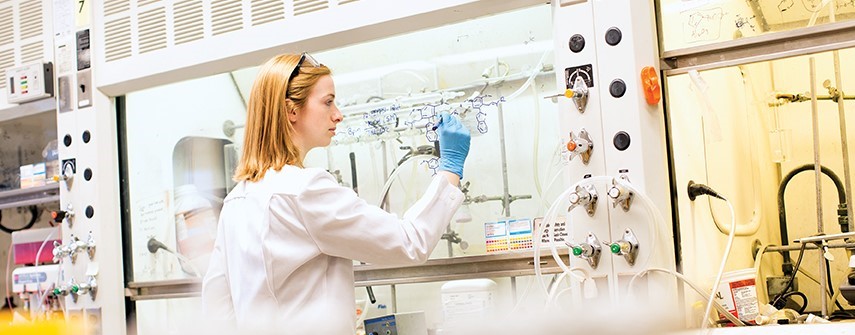
$1.65M NSERC grant will help York U develop future pharmaceutical technology disrupters
Students will be trained to meet scientific and engineering challenges of tomorrow, drive and support pharmaceutical drug discovery and vaccine development in Canada
TORONTO, April 18, 2023 – As one of today’s recipients of a Natural Sciences and Engineering Research Council of Canada (NSERC) Collaborative Research and Training Experience (CREATE) grant worth $1.65 million over six years, York University’s Distinguished Research Professor Sergey Krylov will lead a team of researchers and industrial leaders in training the next generation of technologically advanced graduates.
Master’s and PhD students will graduate from York with the technical and managerial skills to take on leading positions in new entities to capitalize on disruptive technologies that could impact Canada’s research and development in the pharmaceutical industry.
“This grant will help train our students to become highly qualified personnel ready to meet difficult scientific and engineering challenges, while also helping to drive and support pharmaceutical drug discovery and vaccine development in Canada,” says York Vice-President Research and Innovation Amir Asif. “This NSERC CREATE program taps into York’s expertise in bioanalytical methods and instrumentation and the University’s commitment to purposeful research. I congratulate Sergey Krylov on his successful application and collaboration.”
NSERC announced the winners of the CREATE program earlier today designed to give Canada’s researchers of tomorrow, not only improved mentoring, but a better training environment.

The NSERC-funded industrial stream Technology-Enhance Pharmaceutical Discovery (TEPD) program at York, designed with industry input, will bring together some of Canada’s leading academics working on technological aspects of pharmaceutical discovery along with major companies driving or supporting this country’s pharmaceutical research and development.
“Big pharma is continually shifting tremendous costs and risks associated with pharmaceutical discovery to small-venture players, changing the landscape of pharmaceutical discovery in Canada,” says Krylov of the Faculty of Science. “The pressing needs of Canadian pharmaceutical research and development were what motivated our academic and industrial team members to come together to create a comprehensive training ecosystem capable of making a difference in this industry at the national level.”
The goal of this program is to enhance Canada’s global economic competitiveness by fueling innovation in the pharmaceutical industry, a sector of the economy which creates more research and development jobs in Canada than any other industry.
Trainees will conduct collaborative research in one of the seven pharmaceutical-discovery research themes, like the stages involved in pharmaceutical discovery used by developers of drugs, biologicals and vaccines. They will work with leading-edge technologies that could lead to potential drug discovery and vaccine development through the design and synthesis of DNA-encoded libraries (DELs), the selection of hits from DELs and their validation.
The program is comprised of collaborative research, joint seminars, summer school with hands-on and in-classroom workshops run by instructors from academia and industry to advance soft and professional skills of the trainees, summer research conferences and industrial internships in the research and development labs of the four industrial partners in Canada or the United States.
Students will graduate with superior industrial and academic research expertise, ready to meet the scientific and engineering challenges of Canada's new research landscape.
